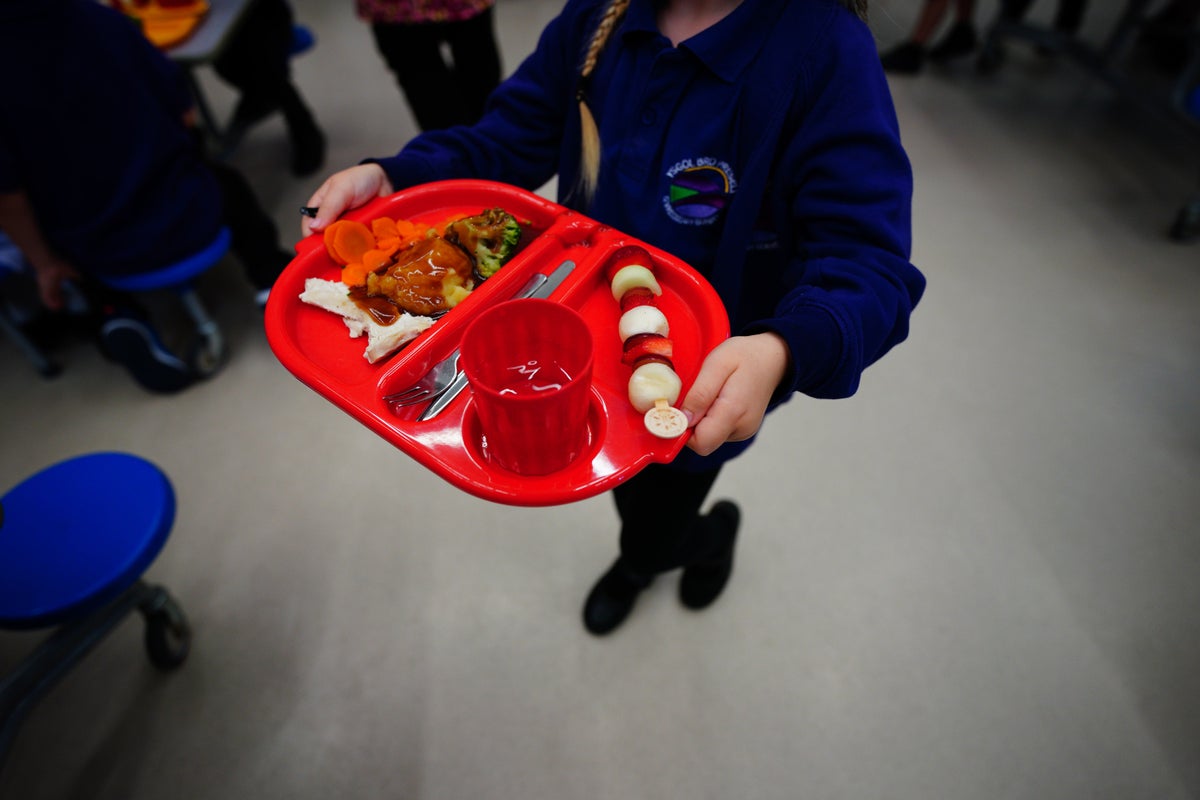
The number of children in low-income families receiving universal credit has risen to four million, analysis of new official data shows.
That figure is half a million more than the same time last year, according to the statistics from the Department for Work and Pensions (DWP).
The rise comes as The Independent’s Feed the Future campaign urges the government to help more children with free school meals by including those on universal credit, who are currently exempt from the scheme.
It is estimated 800,000 children live in poverty but miss out on free school meals because their parents earn more than £7,400 a year, excluding benefits.
Have you been affected by this story? Contact zoe.tidman@independent.co.uk
Universal credit payments help to support people who are low-income or out of work.
Half of the households claiming this type of benefit in August had children, according to the new government data.
This covered more than four million children, which was nearly 10,000 more than the month before, the analysis showed.
It was also an increase of half a million from August last year when 3.5 million children were living in households claiming universal credit.
The Child Poverty Action Group said children in these homes would face big cuts to household incomes if benefits rise in line with wages instead of inflation.
Alison Garnham from Child Poverty Action Group (CPAG) said: “Children are going hungry because family budgets are at snapping point. This problem has been long in the making and in the current crisis another real-terms cut is indefensible.”
It came as new analysis from CPAG found low-income families will see a sharper rise in outgoing costs next financial year – 21 per cent up from 2021/2022 – compared to 17 per cent for average households as they spend a higher proportion of their income on the necessities that have seen the greatest increases.

“The prime minister has said he will protect the most vulnerable – as a minimum that means uprating benefits with inflation so that children have enough food and warmth this winter – but longer term more will be needed,” Ms Garnham said.
Her charity is also calling on the government to expand eligibility for free school meals to all families on means-tested benefits and to remove the benefit cap limiting the amount some families can receive.
The DWP said there has been a “long-term upward trend” in the proportion of households receiving universal credit. Only people without children seeking employment are allowed to claim the benefit when it was first introduced, but it has been expanded over time and others have since transferred to it, the department said.
A government spokesperson said: “Universal Credit provides a strong financial safety net for millions of families every year and we are committed to enabling parents to support themselves and their families while building towards financial independence through work.
“Our extensive immediate support for families also includes our Energy Price Guarantee, saving around £700 for a typical household over winter, and our Household Support Fund, worth over £1bn to help people with essential costs, combined with longer-term changes such as altering Universal Credit to help people keep £1,000 more of what they earn every year.”
“This government has expanded access to free school meals more than any other in recent decades, with 1.9million pupils currently receiving a nutritious free school meal through the benefits-related criteria.
“We will continue to keep all eligibility under review, to ensure that these meals are supporting those who most need them.”







